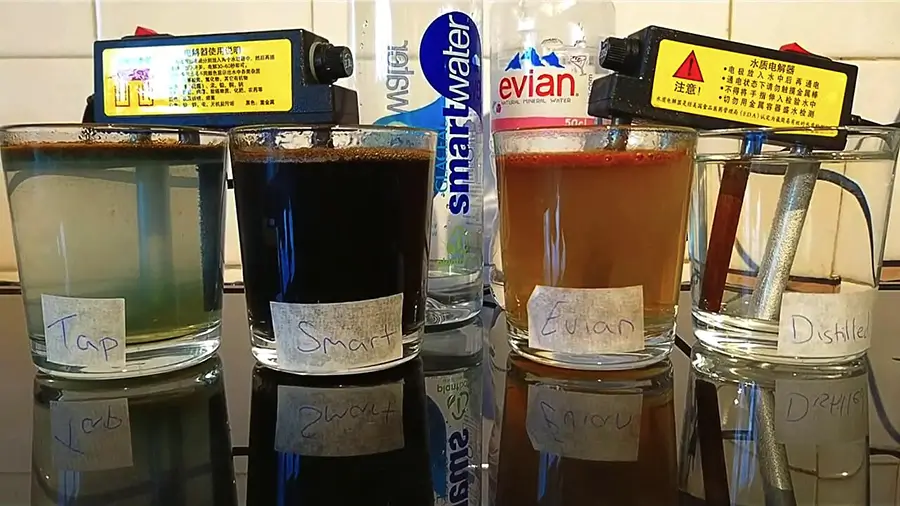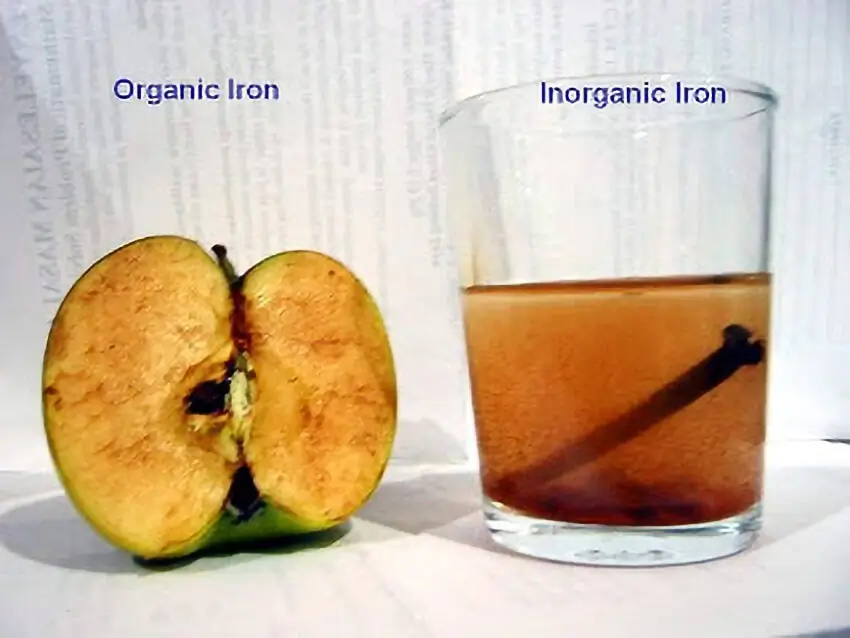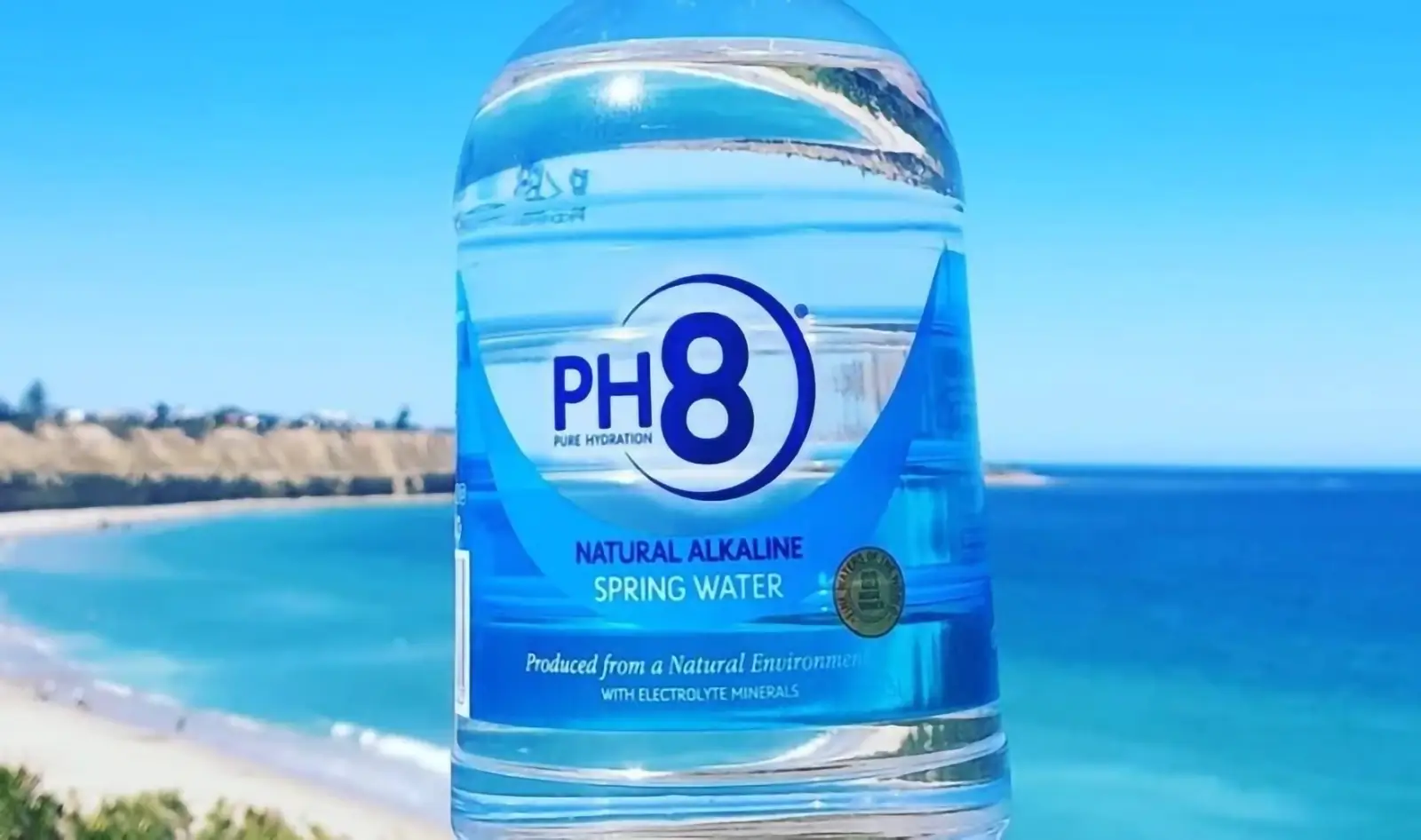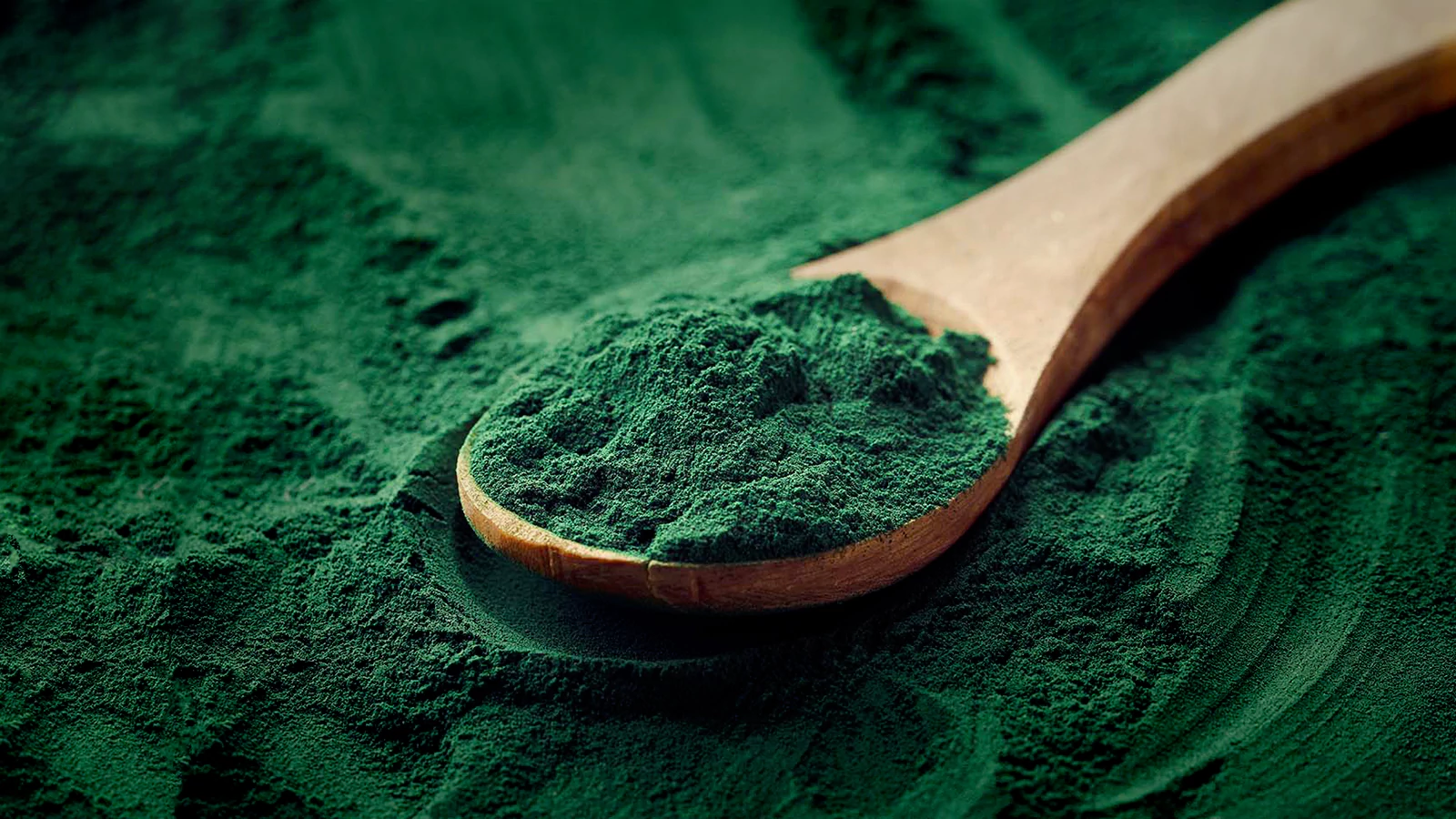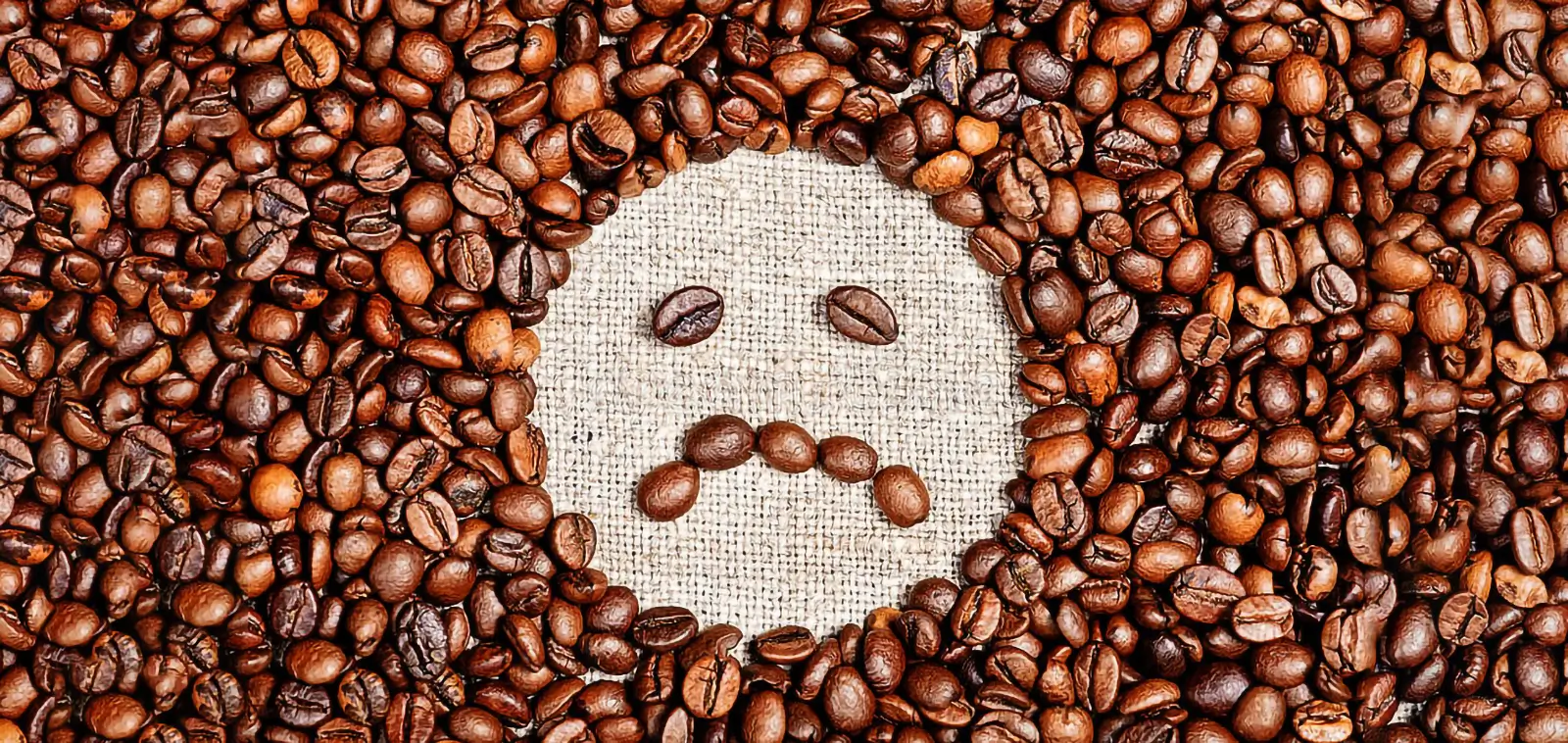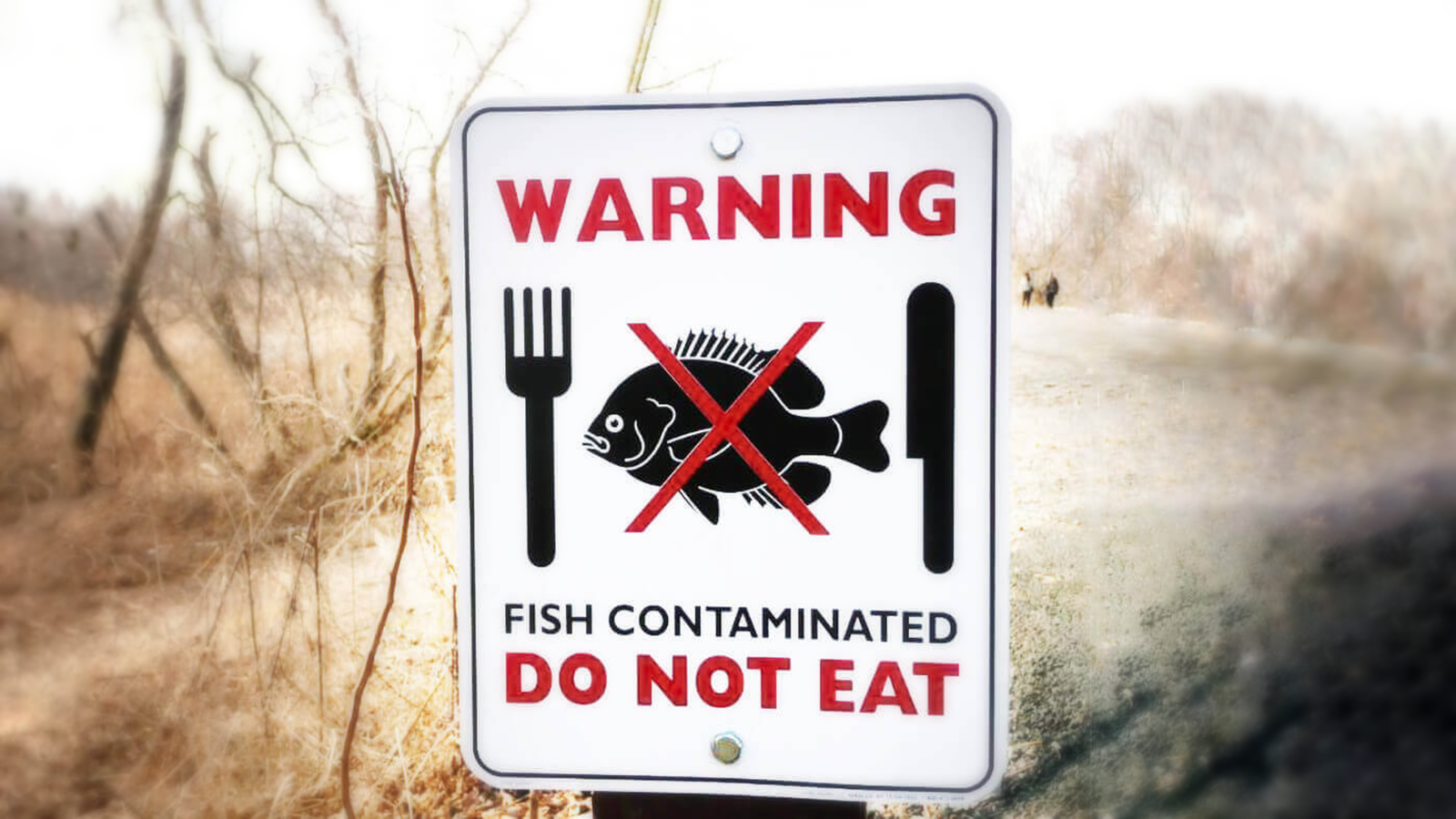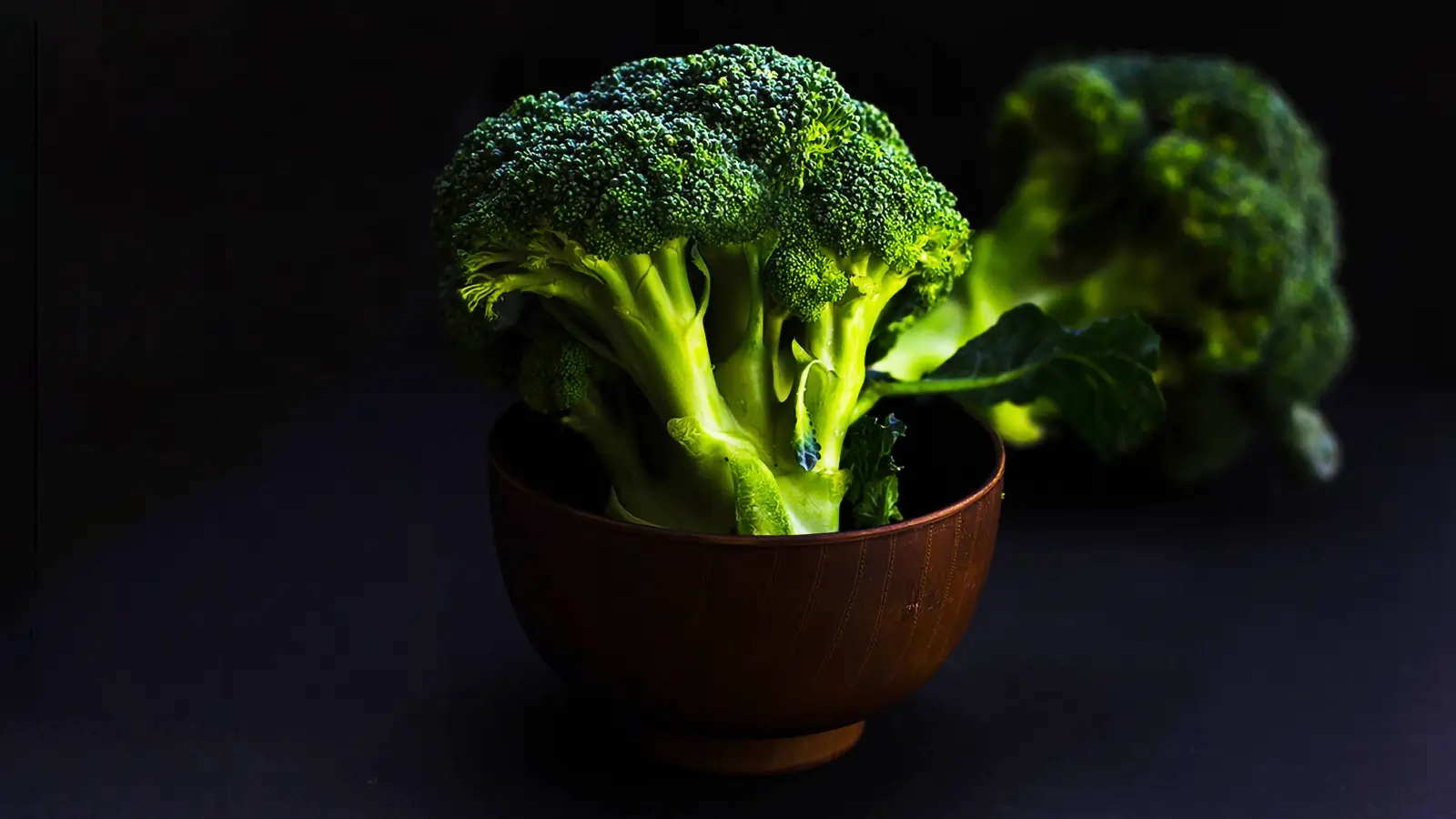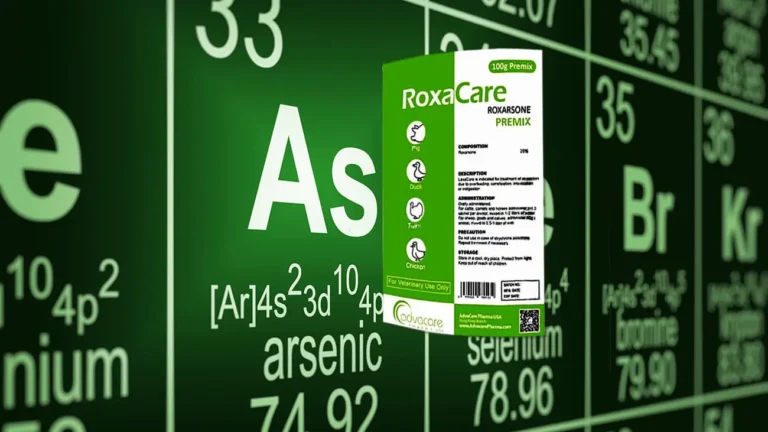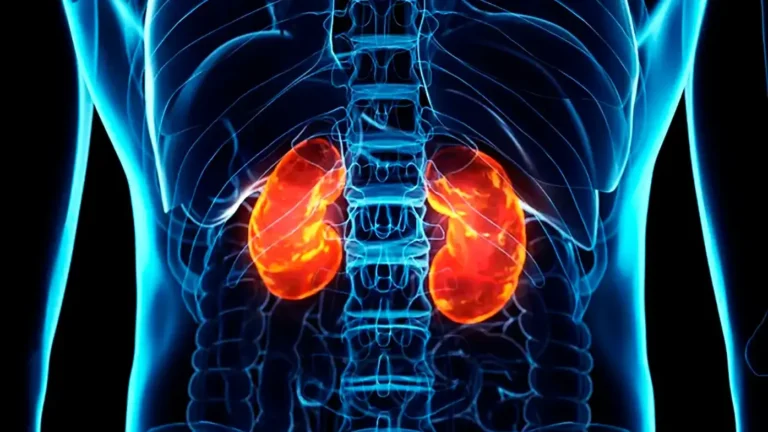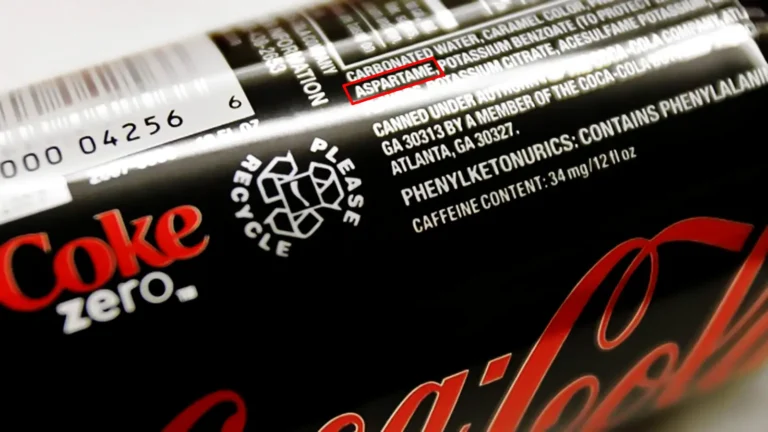Distilled Water for Drinking- Detoxification Aid or a Deadly Poison?
There is much misinformation about the detoxifying properties of water and distilled water in particular. What science has to say about it?
Milos Pokimica
Written By: Milos Pokimica
Medically Reviewed by: Dr. Xiùying Wáng, M.D.
Updated August 4, 2023There is much misinformation about the detoxifying properties of water and distilled water in particular. Dealing with demineralized water can have adverse effects too. It is not something average people should do if they do not completely understand the entirety of the process first. How many people know that distilled water does not conduct electricity? It even has a different magnetic charge potential than hard water and it is exactly this magnetic charge that can help to some extent with the elimination of toxic substances but the most important issue is not the detoxifying properties of demineralized water. It is, but it is also avoiding all of the toxic load that comes along with regular polluted water. Water purification is a big business.
Also, it is not unnatural. All clouds in the world are distilled water. Rain and snow too. It is not some chemical produced in the lab like Coca-Cola. It is just pure water H2O without anything else in it.
In the human body water functions as a solvent and a medium for the transport of nutrients. It is also a transport mechanism for waste products. It regulates body temperature, lubricants the joints, and has many other biochemical reactions. It is the water, only water H2O not any other dissolved and suspended minerals that do any of these functions. It is just water.
When water is low in TDS (total dissolved solids) that means that it has not too many dissolved minerals in it. If water is distilled, that means that it does not have anything in there but H2O. Total dissolved solids in distilled water are zero. It also has different electrical charge properties that make distilled water unique in that manner that it has the capability to attract inorganic minerals and toxins just by itself.
Distilled water wants to saturate itself sort of speak, and that is a property that can be wary useful if you want to detoxify yourself. It is believed that distilled water can help the detoxification process by washing out excess inorganic minerals and toxins from deposits and other parts of the body.
There is a big difference between inorganic and organic minerals. Realistically, minerals are just inorganic metals, so it makes no difference where you get your minerals. The most important factor when we talk about organic vs. inorganic minerals is not composition, it is the same metal, but it is the size and the form they are in. A plant takes the artificial, inorganic minerals from the soil where it is growing that are big chunks of metal if you like that analogy. When plants take up inorganic minerals from the ground by the roots then they synthesize them, or if you like break them down into a molecular size and forms that are small enough to do regular biological functions in living matter.
Mineral water that comes from the stream is saturated with inorganic molecules. The size of these minerals is not small enough for us to do biological functions so we call them inorganic, not because they are some other molecular substance but just because the size of the molecule is too big. Think of it this way, in mineral water coming from the streams there are also small chunks or rocks that water breaks off, but you cannot see them with the naked eye. They are small but not small enough, at least not small enough to be used as an organic form of minerals.
There is only one way that the human digestive system can break down larger tightly bound minerals into usable ions, and that is with stomach acid. The food transit time through the stomach is about one hour. If the inorganic mineral ion is not ionized during this small amount of time and the mineral moves from the high-acid environment of the stomach no further beneficial breakdown will take place in the small intestines. All further break down ceases. If the inorganic mineral compound is already relatively small like from deep spring water, it might get degraded to smaller monoatomic scale particles by the acid in the stomach and be bioavailable. Once minerals left the acidic environment of the stomach the remainder of the non-ionized minerals are of no use to us and are in no way available to do any biological functions inside our body except negative ones. Usually, they will just pass through our GI tract unusable. But If you ingest big chunks of metals called inorganic minerals they might end up in the bloodstream in small quantities. However, they can pass into the bloodstream in large quantities if you have a leaky gut or inflammation in the intestines.
They will not be small enough to integrate into cells or do any other biological function and will create deposits in the body if the body does not remove them.
There is unproven speculation that you will even receive from your regular MD that distilled water is dangerous for your health because it would leech minerals out of the body and can cause some mineral deficiencies.
Speculation is that absorbing extremely purified water, treated by distillation, reverse osmosis, or deionization, leaches minerals from the body.
Because there are minerals in the water in the first place drinking distilled water will make problems in the same manner as removing for example husk from the wheat with all of its minerals and eating just refined flour. They say that minerals in water are a necessary part of our mineral absorption. There were some Russian studies done on this topic and are available through the World Health Organization. The summary was that fluid and electrolytes are better replaced with water containing a minimum of 100 mg/L of TDS. However, this only has relevance in specific situations where the human body was exposed to heavy exertion and sweating. It is the market for sports drinks and there is only one substance glucose, regular sugar, that was added to help muscles to replenish the loss of glycogen quickly and to promote more energy in prolonged exercise. Low TDS or demineralized water has nothing to do with it, and for everyday drinking and cooking purposes, it is the best choice. The body has the mechanisms to regulate within very narrow limits the concentrations of minerals (ions) and water as well in all cells and all organs in the body.
The organ that is most responsible for mineral balancing is the kidneys. They maintain ion concentrations and not just sodium and potassium and calcium but most of the minerals in the normal range during a process of elimination and reabsorption.
There is a process called osmosis or osmotic pressure. When sodium ions outside of the cell and potassium ions inside of the cell are out of balance, then the osmotic pressure is out of balance. That will cause the water to flow across the cell membrane to neutralize the difference in osmotic pressure. Any changes that can happen in a reasonable range of concentration of ions is adjusted in a couple of seconds because water moves quickly through cell membranes. Drinking distilled water (0 to 100 mg/L TDS) has nothing to do with it. If any changes occur in the body, it will be rapidly brought to equilibrium with absolutely no consequence. It is the kidneys that in reality control the overall concentration of the constituents of body fluids and not some minuscule amounts of inorganic minerals in tap water. Kidneys on average men filter about 180 liters of water per day. Over 99% is reabsorbed to the bloodstream, and only 1.0 to 1.5 liters are eliminated as urine. If you drink distilled low ion concentration TDS water, nervous and hormonal feedback mechanisms will cause the kidneys to eliminate extra water that is not needed and thus maintain the ion concentration in the body fluid to normal values. The opposite is also true. If the ion concentration in the fluid to be filtered is higher than normal, the kidney’s homeostatic mechanism will keep fluid osmolality normal by retaining water.
That is why you bloat when eating too much salt and too little potassium. It is not the sodium that is a problem. It is unopposed sodium because there is a lack of potassium in the body. When a healthy person drinks low TDS water, it should not cause any health issues.
Significant nutritional deficiencies might cause a leaching problem in the long run, which is what MD will argue.
How much of consuming one to two liters of low TDS water on a daily basis cause a leaching problem in reality? We will have to look into this in more detail.
If we count all of the minerals in spring water as organic, they will not be able to compound to more than a couple of percent of the total minerals digested. Usually, minerals should come from food, not from water. Drinking pure, pristine spring water from the unpolluted earth of the past it would not be a problem. Now it is. And distilled water may have some benefits too. WHO had done experiments on volunteers. Results showed that when people start to drink distilled water, the increased diuresis happens with 20% more body water volume, and also serum sodium concentrations decrease. So you excrete more water and lose some sodium. The second thing that was observed was the decrease in potassium serum concentration. To sum it up, drinking distilled water increase the elimination of sodium, potassium, chloride, calcium, and magnesium ions from the body. Distilled water interacts with another gastrointestinal tract by osmoreceptors, causing an enhanced movement of sodium ions into the intestinal lumen. This will then cause a slight reduction in osmotic pressure in the blood with the following enhanced discharge of sodium into the blood as an adaptation response. In response volume receptors in the bloodstream are activated, inducing an increase in sodium elimination. Now, this will not be a problem in nature, but especially now it is not because we have our salt shaker on every table and this can be actually beneficial depending on how much salt you eat and how much distilled water you drink.
There is one other real issue with demineralized water, and that is why I said you need to know what you are doing. When used for cooking, soft water was found to leech a substantial amount of minerals out of food no matter what that food is. In some cases, losses can reach up to 60 to 90 percent. Numbers for calcium and magnesium are about 60 percent, manganese 70 %, copper 66 %, cobalt 86 %, and so on. This can represent a problem because if you cook with soft or distilled water and then throw away that water, you are going to lose much of your nutrition.
That is why you do not cook with it if the water that is used for cooking is not going to be consumed. When you soak beans, for example, use regular water. When you cook beans use regular water or when you cook anything that is going to be rinsed after using regular water.
In contrast, distilled water’s capability to leech nutrients from food is turned into a positive thing if you are going to drink that water. When we eat, we do not absorb all of the nutrients that are in the food. We absorbed some of them, but some of them are not absorbed. It is what we absorbed not what we eat sort of a thing. So using soft or distilled water can help us to absorb more from the food. For example, use it to make tea. Or when I want to make soup or some other dish, I use distilled water because it will leach from the food and help me get more from the same food than regular water and I know it would not have all the polluting chemicals in there. When I eat that soup or drink tea, it is not distilled water anymore. If I want to make soy milk, for example, I am going to use the knowledge of water to my benefit by soaking the beans in regular water and then cooking the beans in regular water that will not leach much of the nutrients from the beans. However, then when I want to blend them into the milk, I will rinse the beans and use distilled water for blending because I want to leech most of the nutrients from the beans to make the milk. So again you need to know what you are doing. I personally don’t drink much water because I drink a lot of vegetable juices throughout the day and I eat a lot of fruits that are mostly water and plus all the water from cooked meals, so I do not have a leaching problem. I like the cleanness and leaching potential of distilled water for detoxification, but again I will drink no more than maybe a glass or two in the day. If you drink 2 liters of water because you do not eat fruit or vegetables and don’t eat cooked meals and are already potassium deficient like 98% of Americans and then go on a diet with gallons of detoxifying distilled water you might get into a more deficient state then the one you are already in. So again I cannot tell you to drink or not to drink it, it is a more complex issue, and you need to do your own research based on the quality of the mineral content of your diet.
Why I drink and cook with it is precisely because of its potential to leach toxins and inorganic minerals out, and regular minerals I get from food or even sometimes from supplements depending on my diet. I usually take iodine and some organic trace minerals solution from time to time. One more thing about leeching minerals. It will not leach any minerals that have already become integrated into the cells. It collects only minerals that have already been rejected or excreted by the cells. Mostly inorganic minerals will be removed. They have a different electrical charge than organic ones and are themselves attracted to the distilled water by the charge. Distilled water will not leach minerals from your tissue cells. I do periodic blood testing to see the levels of electrolytes and other minerals, and I never had a problem.
And one more thing that is important. Some chemicals are not water-soluble. This form of fat-soluble toxins the body cannot eliminate through urine. It must be eliminated through the fiber in the intestines. Fiber is our natural detoxifier for fat-soluble chemicals. Detoxifying without fiber is not complete. The best thing to detoxify is something that has distilled water, all the minerals and vitamins, and fiber. So you can try to do distilled water fasting with psyllium husk and organic mineral solution or just eat a lot of raw organic vegetables and keep in mind that detoxification also depends on the half-life of the substances you have already ingested. Distillation does not remove all of the toxins also. Toxins that can be turned into vapor below 100 degrees Celsius will be distilled with the water. These are usually some of the pesticides. They can be removed and often home distillatory devices have secondary filters made from carbon just because of this. Also, radioactive particles will not vaporize because they have a higher boiling temperature than water. For people who live in the Fukushima area and for all preppers out there to know that when nuclear winter comes you can distill the water and it will lose all of the radioactivity.
References:
Passages selected from a book: Pokimica, Milos. Go Vegan? Review of Science Part 1. Kindle ed., Amazon, 2018.
Related Posts
Do you have any questions about nutrition and health?
I would love to hear from you and answer them in my next post. I appreciate your input and opinion and I look forward to hearing from you soon. I also invite you to follow us on Facebook, Instagram, and Pinterest for more diet, nutrition, and health content. You can leave a comment there and connect with other health enthusiasts, share your tips and experiences, and get support and encouragement from our team and community.
I hope that this post was informative and enjoyable for you and that you are prepared to apply the insights you learned. If you found this post helpful, please share it with your friends and family who might also benefit from it. You never know who might need some guidance and support on their health journey.
– You Might Also Like –

Learn About Nutrition
Milos Pokimica is a doctor of natural medicine, clinical nutritionist, medical health and nutrition writer, and nutritional science advisor. Author of the book series Go Vegan? Review of Science, he also operates the natural health website GoVeganWay.com
Medical Disclaimer
GoVeganWay.com brings you reviews of the latest nutrition and health-related research. The information provided represents the personal opinion of the author and is not intended nor implied to be a substitute for professional medical advice, diagnosis, or treatment. The information provided is for informational purposes only and is not intended to serve as a substitute for the consultation, diagnosis, and/or medical treatment of a qualified physician or healthcare provider.NEVER DISREGARD PROFESSIONAL MEDICAL ADVICE OR DELAY SEEKING MEDICAL TREATMENT BECAUSE OF SOMETHING YOU HAVE READ ON OR ACCESSED THROUGH GoVeganWay.com
NEVER APPLY ANY LIFESTYLE CHANGES OR ANY CHANGES AT ALL AS A CONSEQUENCE OF SOMETHING YOU HAVE READ IN GoVeganWay.com BEFORE CONSULTING LICENCED MEDICAL PRACTITIONER.
In the event of a medical emergency, call a doctor or 911 immediately. GoVeganWay.com does not recommend or endorse any specific groups, organizations, tests, physicians, products, procedures, opinions, or other information that may be mentioned inside.
Editor Picks –
Milos Pokimica is a doctor of natural medicine, clinical nutritionist, medical health and nutrition writer, and nutritional science advisor. Author of the book series Go Vegan? Review of Science, he also operates the natural health website GoVeganWay.com
Latest Articles –
Plant Based News
-
New Netflix Documentary Highlights Impact Of Fishing On Sharks
on July 4, 2025
-
NotCo And Doritos Launch Flamin’ Hot Plant-Based Chicken Nuggets And Mayo In Chile
on July 4, 2025
-
Iconic US National Parks To Get 50% Plant-Based Menus
on July 4, 2025
-
Kung Pao Chickpeas Stir Fry
on July 4, 2025
-
The Secret To Perfect Carrot Hot Dogs
on July 3, 2025
-
These Raw Apple Pie Bars Are Gluten-Free And Vegan
on July 3, 2025
-
Switzerland Rolls Out Labels Flagging Animal Suffering In Food Products
on July 3, 2025
Top Health News — ScienceDaily
- Parkinson’s reversal? One drug brings dying brain cells back to lifeon July 4, 2025
Stanford researchers discovered that dialing down an overactive enzyme, LRRK2, can regrow lost cellular “antennae” in key brain cells, restoring vital dopamine communication and neuroprotective signals in a mouse model of genetic Parkinson’s. After three months on the LRRK2-blocking drug MLi-2, damaged circuits revived and early signs of neuronal recovery emerged, hinting that timely treatment could not only halt but reverse disease progression—and perhaps benefit other Parkinson’s […]
- AI spots deadly heart risk most doctors can’t seeon July 3, 2025
An advanced Johns Hopkins AI model called MAARS combs through underused heart MRI scans and complete medical records to spot hidden scar patterns that signal sudden cardiac death, dramatically outperforming current dice-roll clinical guidelines and promising to save lives while sparing patients unnecessary defibrillators.
- Even low levels of air pollution may quietly scar your heart, MRI study findson July 3, 2025
Breathing polluted air—even at levels considered “safe”—may quietly damage your heart. A new study using advanced MRI scans found that people exposed to more air pollution showed early signs of scarring in their heart muscle, which can lead to heart failure over time. This damage showed up in both healthy individuals and people with heart conditions, and was especially noticeable in women, smokers, and those with high blood pressure.
- Sweet-smelling molecule halts therapy-resistant pancreatic canceron July 3, 2025
A compound best known for giving almonds and apricots their aroma may be the key to defeating hard-to-kill cancer cells. Japanese researchers found that benzaldehyde can stop the shape-shifting ability of aggressive cancer cells, which lets them dodge treatments and spread. By targeting a specific protein interaction essential for cancer survival—without harming normal cells—benzaldehyde and its derivatives could form the basis of powerful new therapies, especially when combined with […]
- Why anger cools after 50: Surprising findings from a new menopause studyon July 3, 2025
Anger isn’t just a fleeting emotion—it plays a deeper role in women’s mental and physical health during midlife. A groundbreaking study tracking over 500 women aged 35 to 55 reveals that anger traits like outbursts and hostility tend to diminish with age and menopause progression. This shift could signal enhanced emotional regulation during and after the reproductive transition. Surprisingly, the only form of anger that remained steady was suppressed anger.
- This sun-powered sponge pulls drinking water straight from the oceanon July 3, 2025
In a leap toward sustainable desalination, researchers have created a solar-powered sponge-like aerogel that turns seawater into drinkable water using just sunlight and a plastic cover. Unlike previous materials, this new 3D-printed aerogel maintains its efficiency at larger sizes, solving a key scalability issue. In outdoor tests, it produced clean water directly from the ocean without any electricity, pointing to a future of low-cost, energy-free freshwater production.
- The fatal mutation that lets cancer outsmart the human immune systemon July 3, 2025
Scientists at UC Davis discovered a small genetic difference that could explain why humans are more prone to certain cancers than our primate cousins. The change affects a protein used by immune cells to kill tumors—except in humans, it’s vulnerable to being shut down by an enzyme that tumors release. This flaw may be one reason treatments like CAR-T don’t work as well on solid tumors. The surprising twist? That mutation might have helped our brains grow larger over time. Now, researchers […]
PubMed, #vegan-diet –
- Exploring the role of gut microbiota in rheumatoid arthritis: the effects of diet and drug supplementationon July 2, 2025
Rheumatoid Arthritis (RA) is a chronic autoimmune disease that mostly breaks out at the joints. It further causes bone erosion and decreased life quality due to severe pain. Current drugs are mainly focused on reducing pain, but unable to terminate the disease progression. This study aims to determine the effect of diet types (Western, Vegan and Mediterranean) on RA progression. Some dietary supplements and drug administration (Huayu-Qiangshen-Tongbi formula or Leflunomide plus Methotrexate) […]
- Blood biomarkers of Alzheimer’s disease in Australians habitually consuming various plant-based dietson June 30, 2025
BackgroundEvidence suggests that plant-based diets (PBDs) may be protective against neurodegenerative diseases such as Alzheimer’s disease (AD).ObjectiveThis study examined associations between blood-based AD biomarkers in individuals 30-75 years without current or diagnosed cardiovascular disease following different PBDs versus regular meat-eating diets (RMEs).MethodsThis secondary analysis of the Plant-based Diets study measured Aβ(1-42)/Aβ(1-40), p-tau181, NFL, and GFAP in 237 plasma […]
- Zinc supplementation among zinc-deficient vegetarians and vegans restores antiviral interferon-α response by upregulating interferon regulatory factor 3on June 28, 2025
CONCLUSION: We identified zinc-dependent IRF3 expression as an essential cellular mechanism behind impaired IFNα response in zinc-deficient subjects. This may contribute to disturbed antiviral immunity and cause increased susceptibility to virus infections in vivo. Oral zinc supplementation effectively restored IRF3 and IFNα levels. Hence, nutritional interventions may become increasingly important in order to prevent health implications from micronutrient deficiencies among vegetarians and…
- Micronutrient intake and nutritional status in 16-to-24-year-olds adhering to vegan, lacto-ovo-vegetarian, pescatarian or omnivorous diets in Swedenon June 26, 2025
CONCLUSION: Youth, regardless of dietary practice, need support to ensure adequate micronutrient intakes, particularly for vitamin D and selenium. Further research is required to evaluate iodine nutrition in Swedish youth.
- Integrating comparative genomics and risk classification by assessing virulence, antimicrobial resistance, and plasmid spread in microbial communities with gSpreadCompon June 26, 2025
CONCLUSIONS: The gSpreadComp workflow aims to facilitate hypothesis generation for targeted experimental validations by the identification of concerning resistant hotspots in complex microbial datasets. Our study raises attention to a more thorough study of the critical role of diet in microbial community dynamics and the spread of AMR. This research underscores the importance of integrating genomic data into public health strategies to combat AMR. The gSpreadComp workflow is available at…
Random Posts –
Featured Posts –

Latest from PubMed, #plant-based diet –
- Low-Carbohydrate Diet Patterns That Favor High-Quality Carbohydrates Are Associated with Beneficial Long-Term Changes in Biomarkers of Inflammation and Oxidative Stress in the Framingham Offspring…by Ghaida F Aloraini on July 4, 2025
CONCLUSIONS: LCD patterns that preserved high-quality carbohydrates while replacing low-quality carbohydrates sources, such as refined grains and added sugars, with fat and protein were inversely associated with inflammation and oxidative stress score, potentially lowering chronic disease risk.
- Linking the Planetary Health Diet Index to sarcopenia: the mediating effect of the non-high-density lipoprotein cholesterol to high-density lipoprotein cholesterol ratio (NHHR)by Huan Chen on July 4, 2025
CONCLUSION: This study highlights the observed negative correlation between PHDI and sarcopenia, with NHHR acting as a partial mediator. These findings emphasize the potential importance of dietary patterns in strategies aimed at preventing sarcopenia.
- Design and conduct of a full diet-controlled, parallel, 2-week residential trial for diabetes prevention without weight loss in Asian Chinese and European Caucasian adults with prediabetes: the New…by Ivana R Sequeira-Bisson on July 4, 2025
BACKGROUND: The causal underpinning of increased metabolic risk and previously observed dichotomous plasma metabolome in Asian Chinese vs. European Caucasian remains undetermined and may be hypothesised as attributed to ethnicity (genetic background), pathology (dysglycaemia) and/or lifestyle (habitual diet). We aimed to investigate the underlying cause(s) and the effect of dietary intervention on biomarkers of type 2 diabetes (T2D) in cohorts with prediabetes. The diets are a generic current…
- Comparison of digestive capacity in broilers raised on diets with or without soybean mealby Xiaomeng Ye on July 4, 2025
The objective of this study was to investigate the digestive capacity of broilers raised on diets with or without soybean meal, and evaluate the impact on the determination of metabolizable energy (ME) in feed. Two hundred and eighty-eight 7-day-old Arbor Acres male broilers were divided into 6 blocks based on initial body weight (BW). Within each block, 48 broilers were randomly assigned to one of the two types of diet: a corn-soybean meal diet (CSMD) and a corn-based soybean meal-free diet…
- Dietary Patterns and Incident Chronic Constipation in Three Prospective Cohorts of Middle- and Older-aged Adultsby Yiqing Wang on July 4, 2025
CONCLUSION: Our findings suggest that dietary patterns emphasizing plant-based foods and healthy fats may protect against constipation, informing future dietary interventions and treatments for chronic constipation.
- Computational Strategies to Enhance Vitamin B12 Biosynthesis Potential of Microbesby Vidhyashri Nelliyan on July 4, 2025
Vitamin B(12) is a vital nutrient for the normal functioning of many metabolic processes. It has a characteristic corrinoid ring structure with a cobalt ion. Its complex chemical structure demands 30 enzyme-catalyzed steps for synthesis. Deficiency of this vitamin is common among individuals who are predominantly on a strict vegetarian diet. Large-scale production of this vitamin for dietary supplementation is primarily through microbial fermentation. This review discusses various […]
